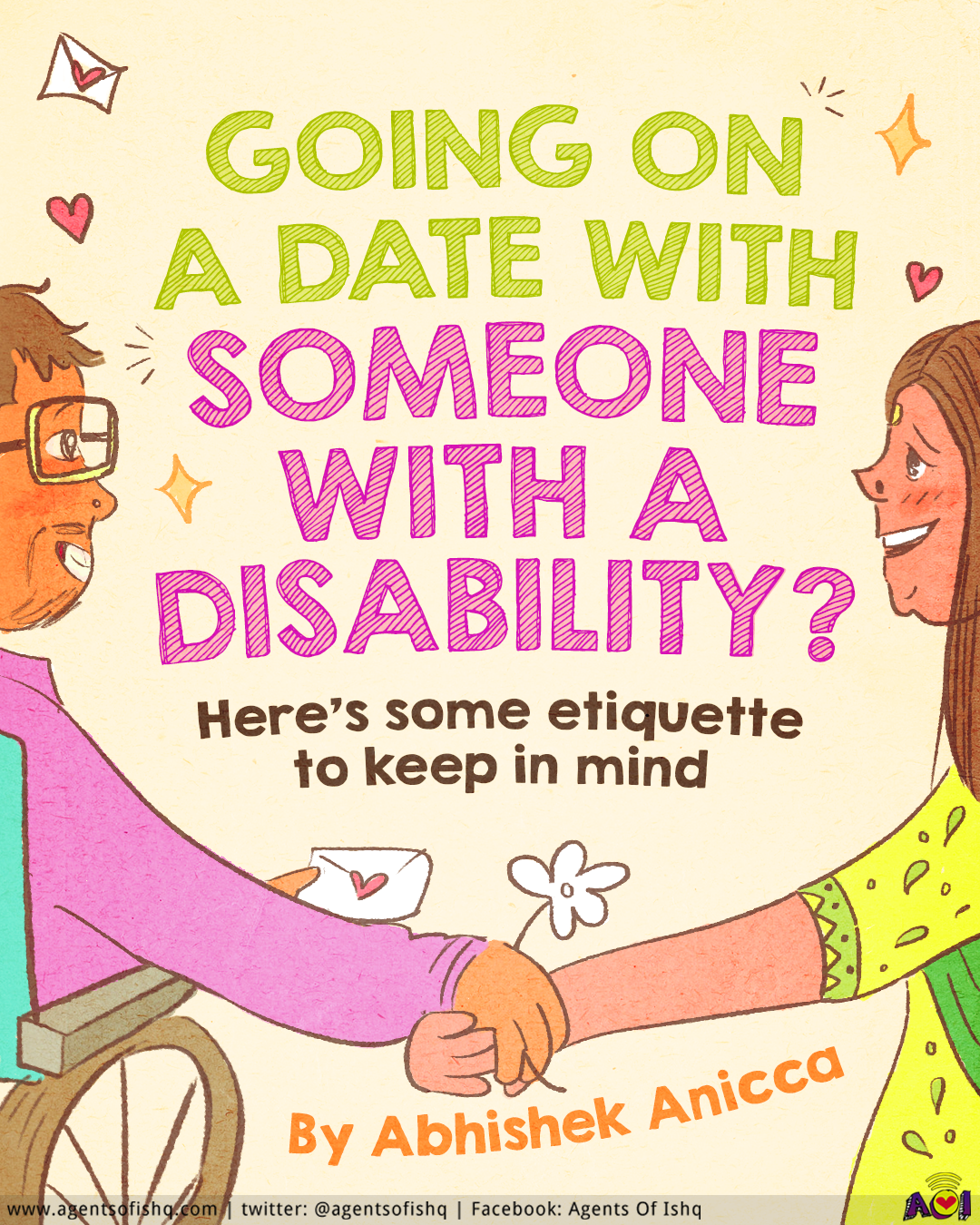
Going on a date with someone with a disability? Here's some etiquettes to keep in mind - By Abhishek Anicca.
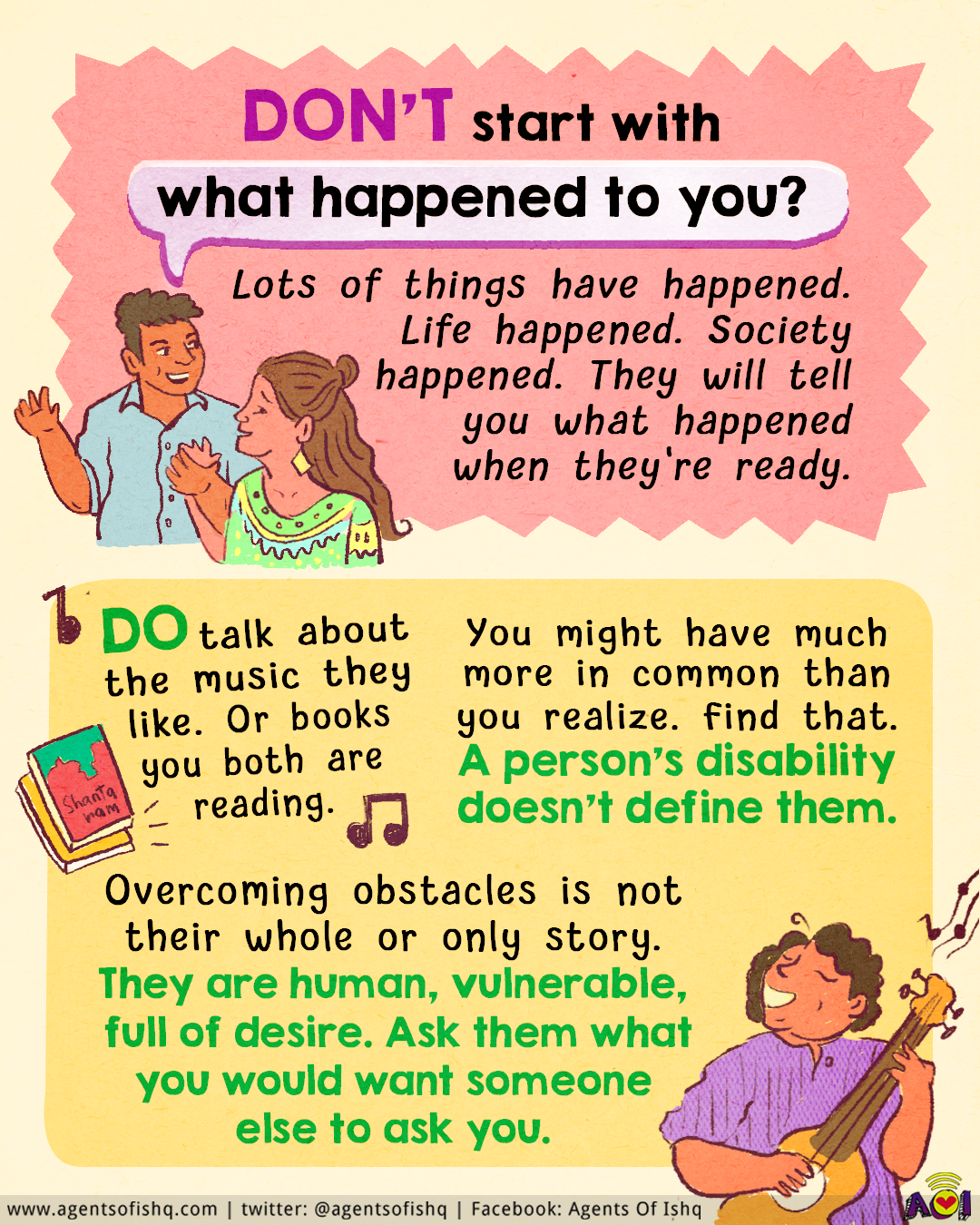
1. Don’t : Start with “What happened to you?”
Lots of things have happened. Life happened. Society happened. They will tell you what happened when they’re ready.
Do: Talk about the music they like.
Or books you both are reading. You might have much more in common than you realize. Find that.
A person's disability doesn't define them. A part of their story might be about getting over obstacles. But there's more. They are human, vulnerable and full of desire. Ask them what you would want someone else to ask you.
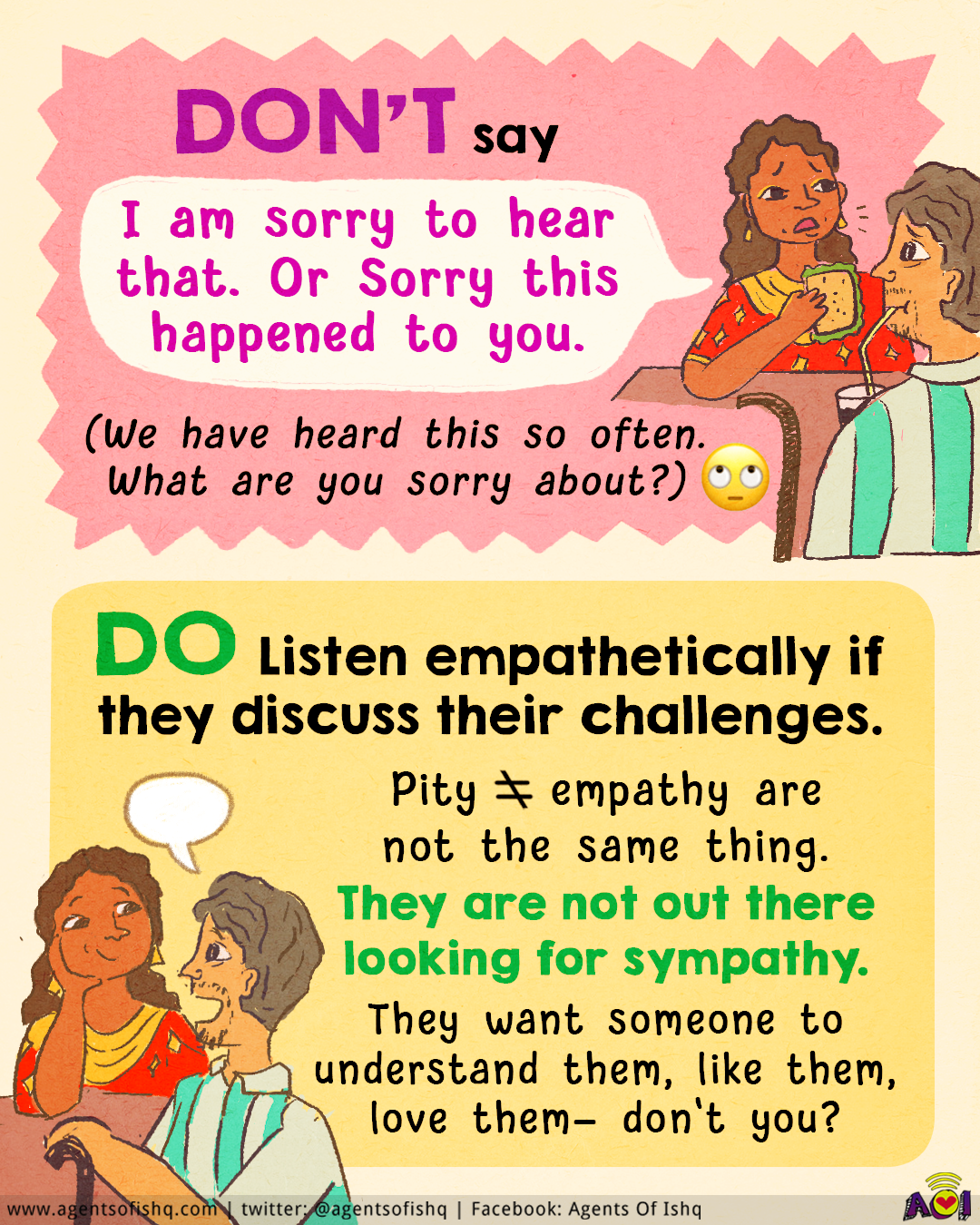
Text on the card reads:
2. Don’t: Say I am sorry to hear that. Or even, sorry this happened to you.
(We have heard this so often. What are you sorry about?)
Do: Listen empathetically if they discuss their challenges. Pity and empathy are not the same thing. They are not out there looking for sympathy. They want someone to understand them, like them, love them - don’t you?
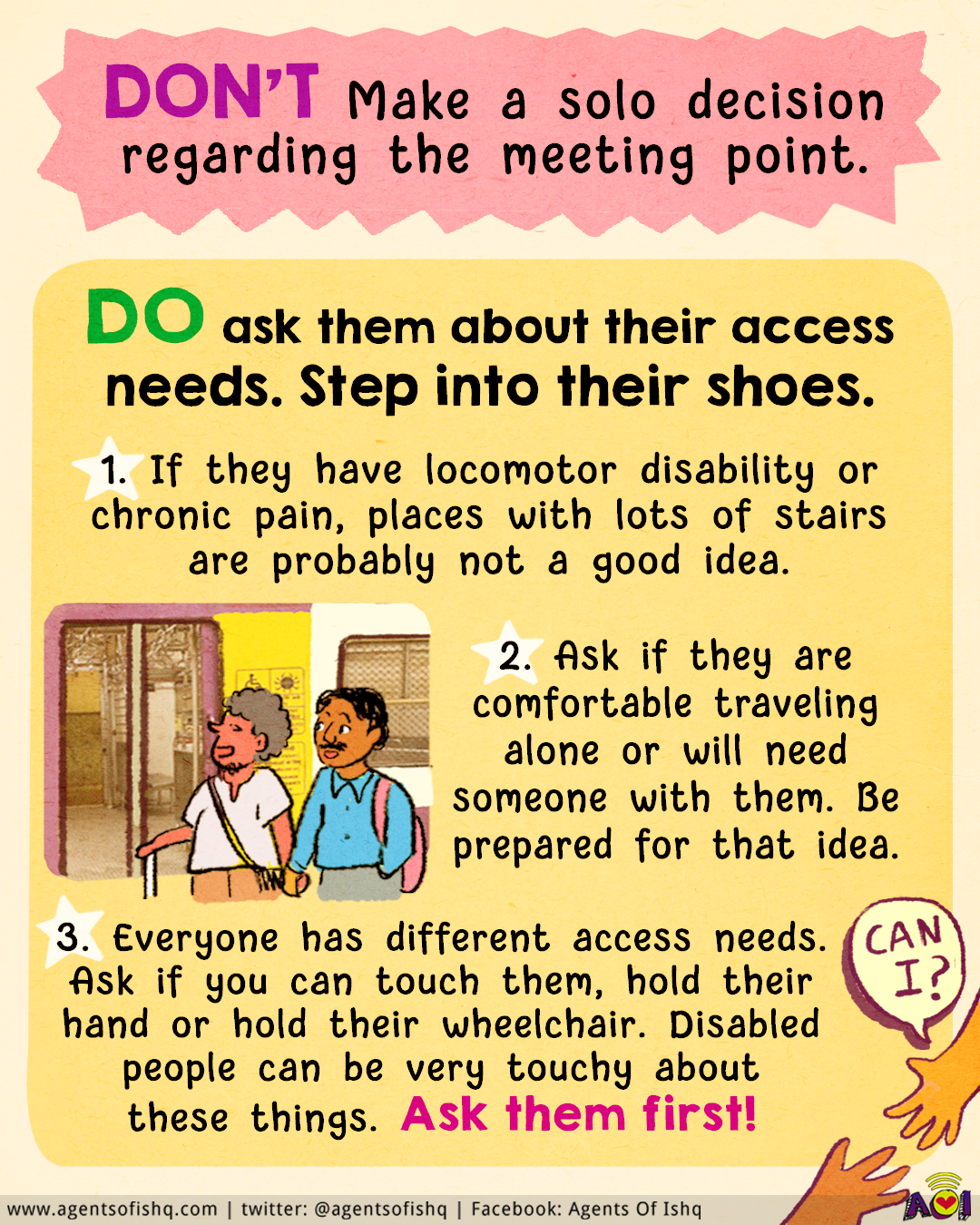
Text on the card reads:
3. Don't: Make a solo decision regarding the meeting point.
Do: Ask them about their access needs. Step into their shoes. If they have locomotor disability or chronic pain, places with lots of stairs are probably not a good idea.
Ask if they are comfortable traveling alone or will need someone with them. Be prepared for that idea. Everyone has different access needs.
Ask if you can touch them, hold their hand or hold their wheelchair. Disabled people can be very touchy about these things. Ask them first!
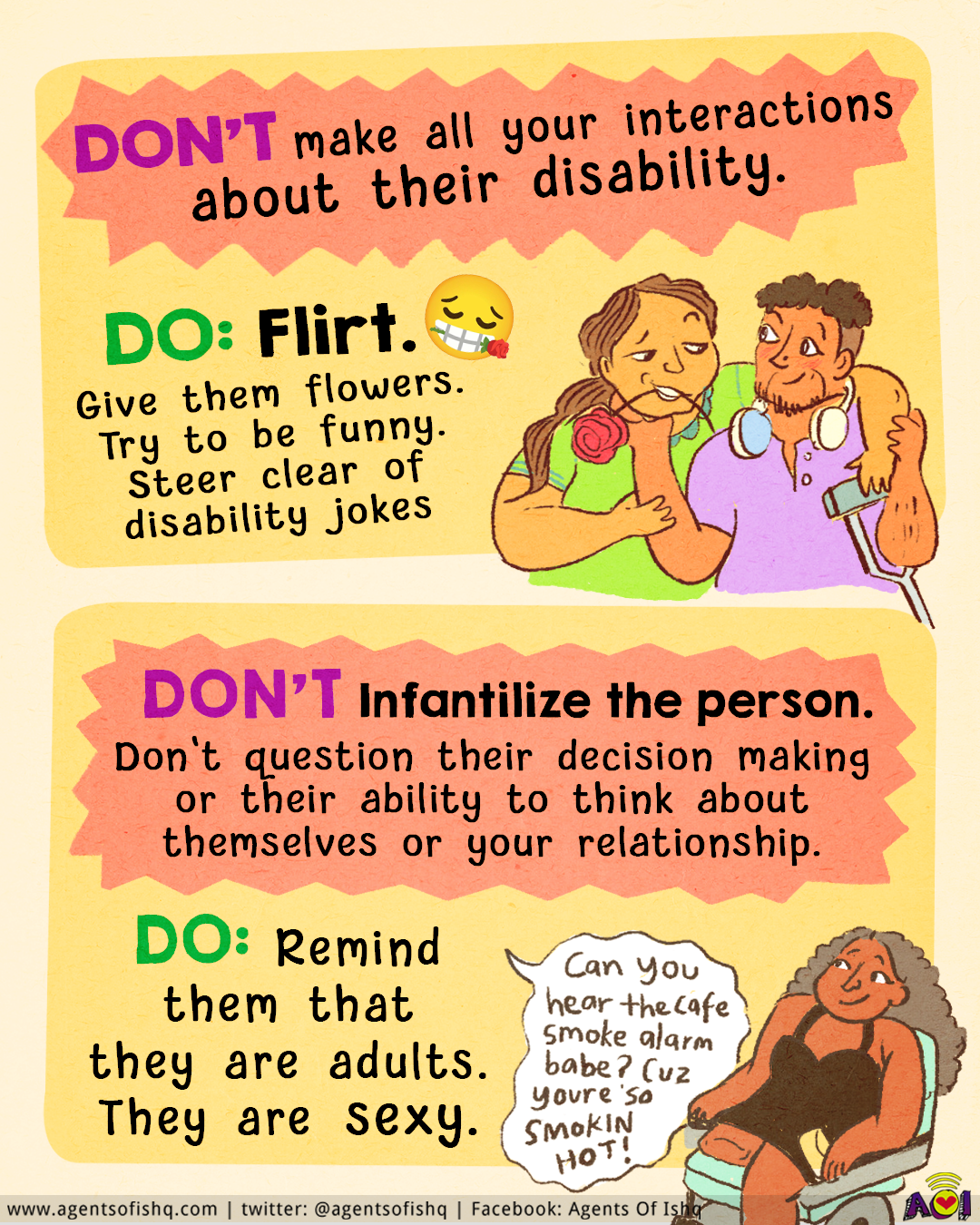
Text on the card reads:
4. Don’t: Make all your interactions about their disability.
Do: Flirt. Give them flowers. Try to be funny. Steer clear of disability jokes.
5. Don’t: Infantilize the person. Don't question their decision making or their ability to think about themselves or your relationship seriously.
Do: Remind them that they are adults. They are sexy.
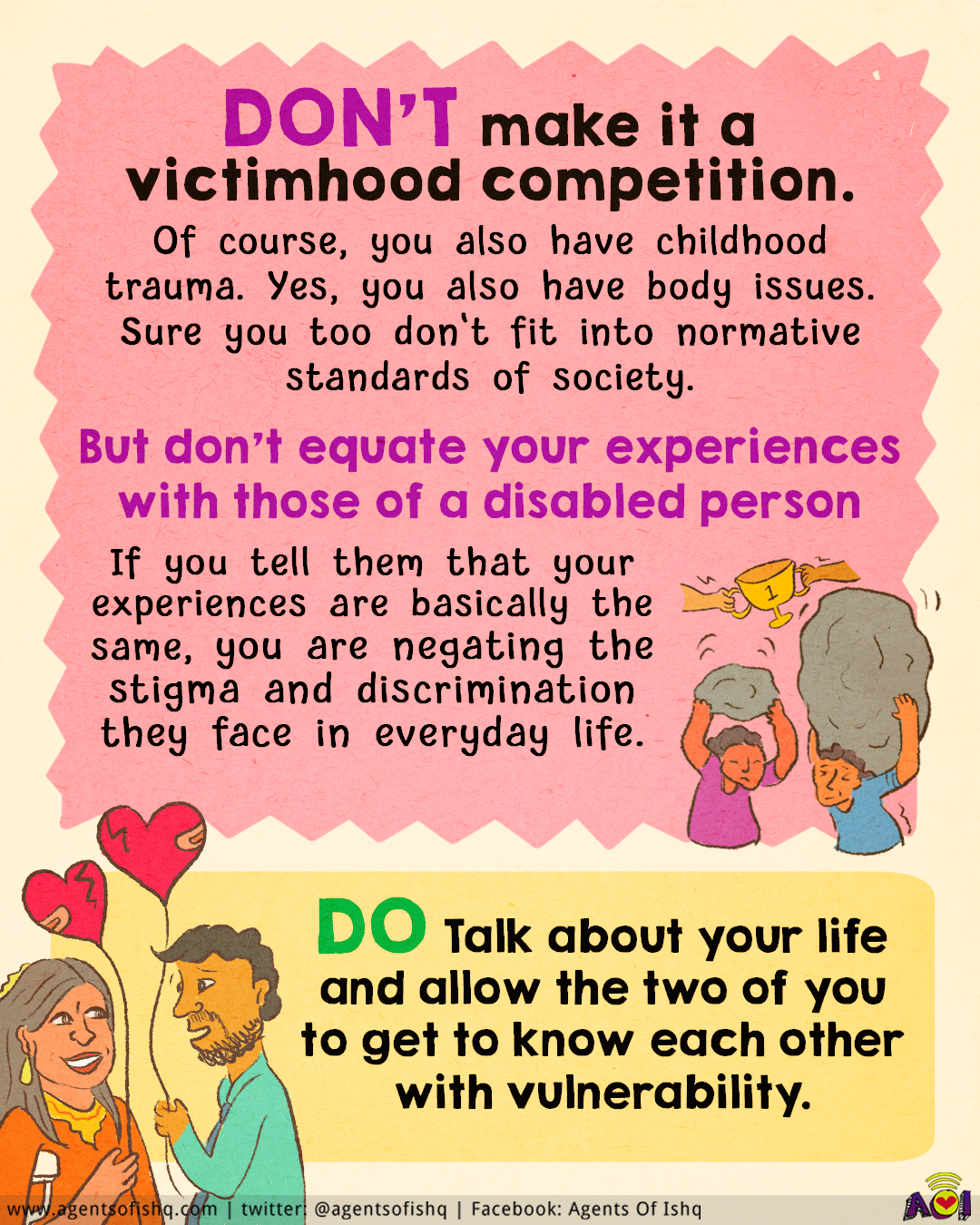
Text on the card reads:
6. Don’t: Make it a victimhood competition. Of course, you have childhood trauma. Of course, you have body issues. Of course, you don't fit into normative standards of society. But don’t equate your experiences with those of a disabled person. If you tell them that your experiences are basically the same, you are negating the stigma and discrimination they face in everyday life.
Do: Talk about your life and allow the two of you to get to know each other with vulnerability.
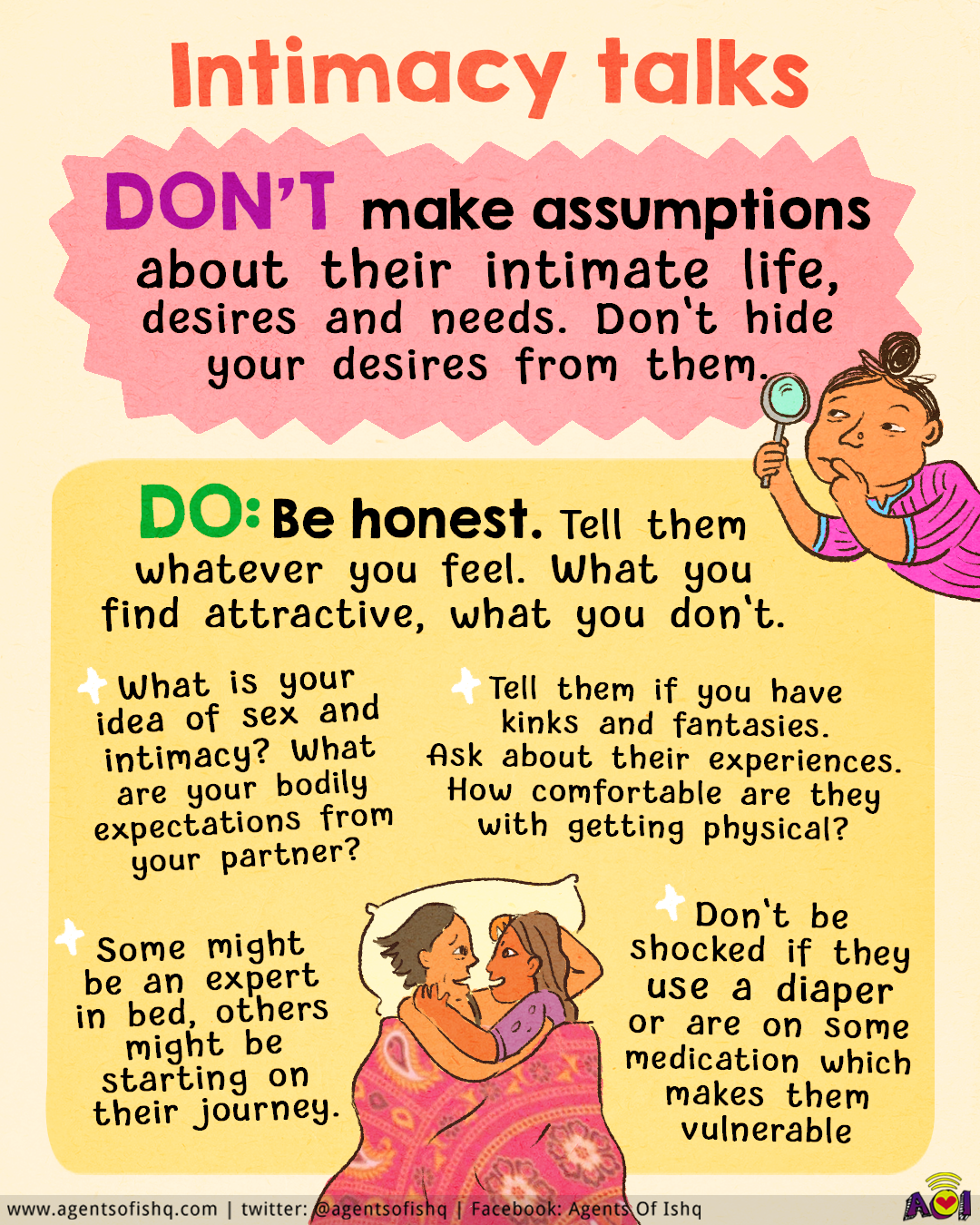
7. Intimacy talks
Don’t: Make assumptions about their intimate life, desires and needs. Don’t hide your desires from them.
Do: Be honest. Tell them whatever you feel. What you find attractive, what you don't. What is your idea of sex and intimacy. What are your bodily expectations from your partner. Tell them if you have kinks and fantasies. Ask about their experiences. How comfortable are they with getting physical? Some might be an expert in bed, others might be starting on their journey. Don't be shocked if they use a diaper or are on some medication which makes them vulnerable in bed.
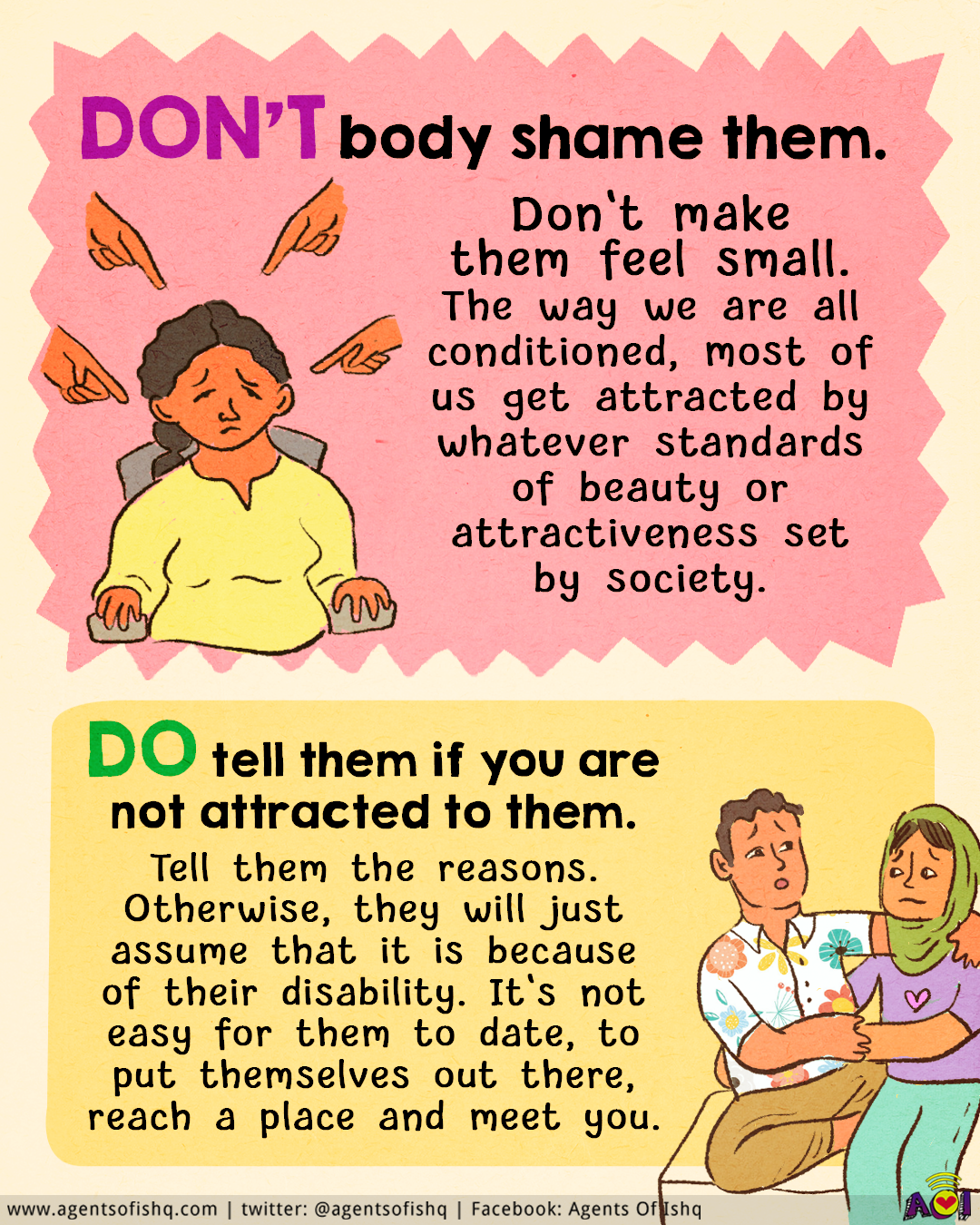
8. Don’t: Body shame them. Don’t make them feel small. The way we are all conditioned, most of us get attracted by whatever standards of beauty or attractiveness set by society.
Do: Tell them if you are not attracted to them. Tell them the reasons. Otherwise, they will just assume that it is because of their disability. It’s not easy for them to date, to put themselves out there, reach a place and meet you.
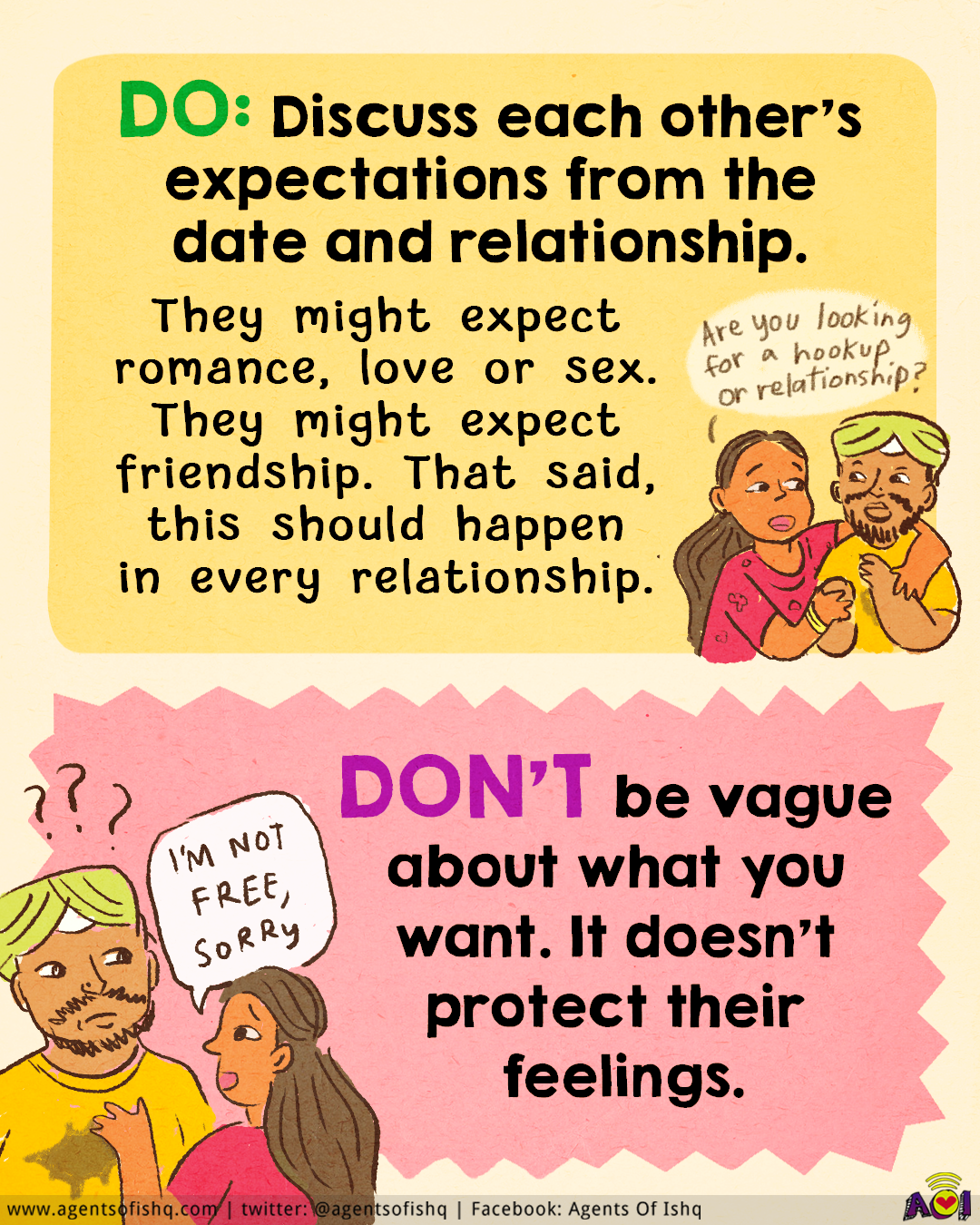
9. Do: Discuss each other’s expectations from the date and relationship. They might expect romance, love or sex. They might expect friendship. That said, this should happen in every relationship.
Don’t: Be vague about what you want. It doesn’t protect their feelings.
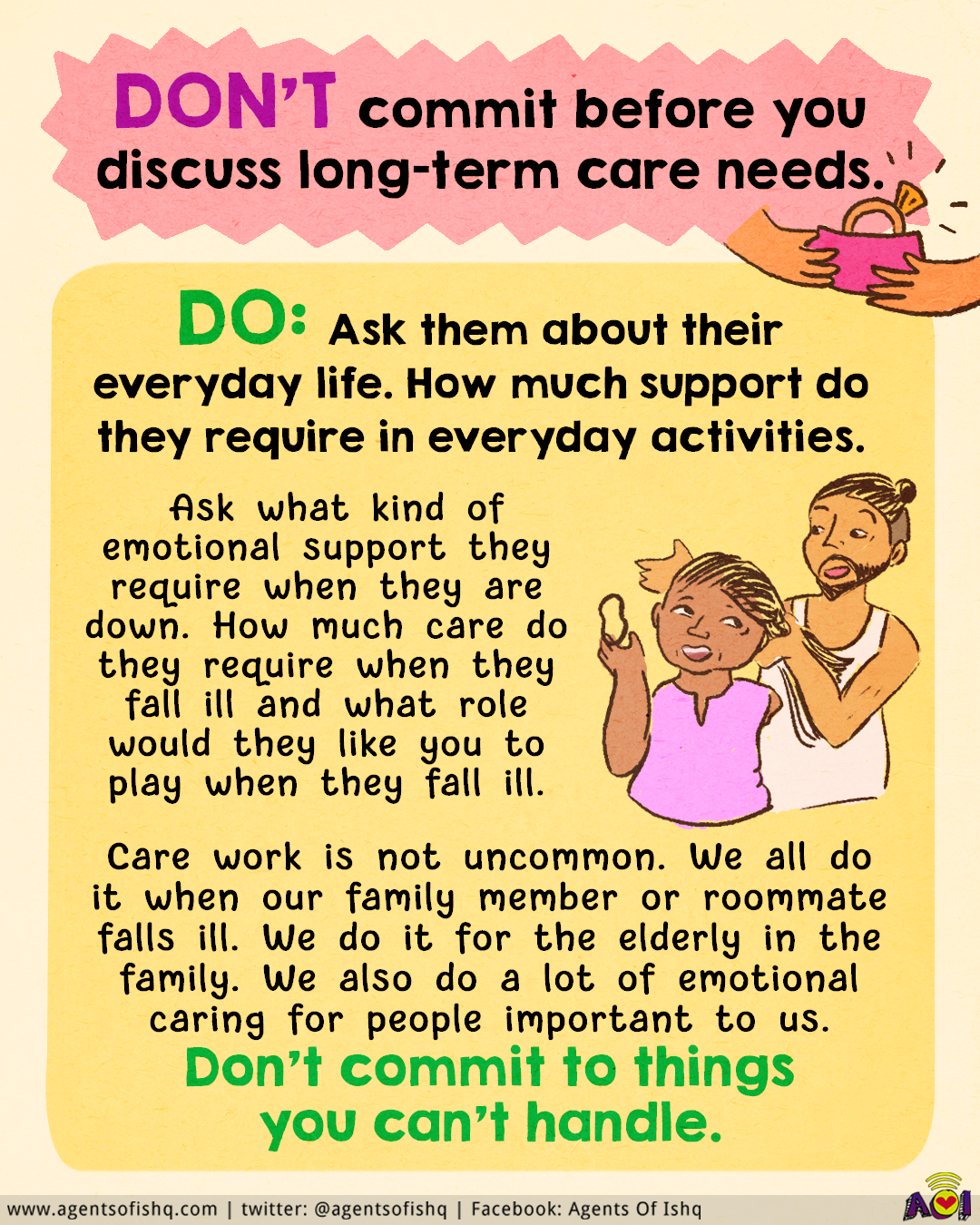
10. Don’t: Commit before you discuss long-term care needs.
Do: Ask them about their everyday life. How much support do they require in everyday activities. Ask what kind of emotional support they require when they are down. How much care do they require when they fall ill and what role would they like you to play when they fall ill. Don't commit to things you can't handle. Care work is not uncommon. We all do it when our family member or roommate falls ill. We do it for the elderly in the family. We also do a lot of emotional caring for people important to us.








